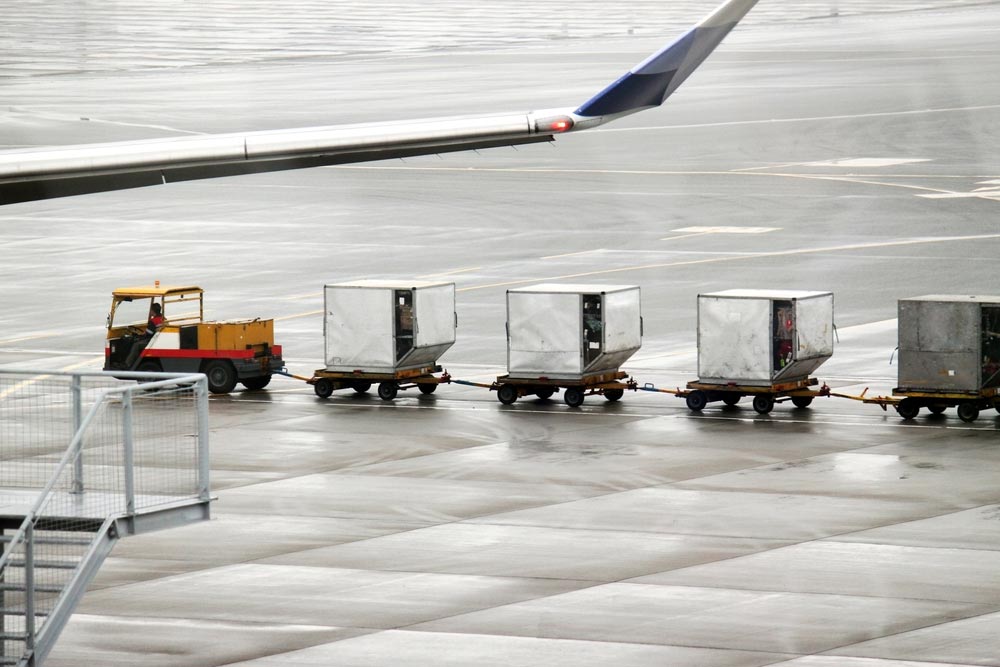Mistakes happen. Sometimes they happen all too often. Mistakes in manufacturing, mistakes in customer service, mistakes by employees, mistakes by managers; all of these can be quite costly to any business. Of course, many mistakes are personal or local and a quick training or reminding of correct processes helps ensure that the mistake will not happen again or at least will happen much less often.
However; mistakes that directly affect customers and negatively influence their desire to continue to purchase our products or to recommend that others do not continue to use our services, can have very long lasting and widely scattered financial detractions from our bottom line profits. But it does not have to be that way at all. Mistakes will happen, that fact we have already stated. But what does not have to happen is that we lose revenue or customers because of these mistakes. Instead, if addressed properly, mistakes can be a gold mine of unheard of extra profit.
Recently my luggage was run over while in the possession of Delta Airlines. The tires of whatever ran over it bent my bag in the shape of a “U” and smashed everything inside. My GPS, iPod speakers, and a spare laptop, were all hopelessly crushed beyond recognition, even though they all were packed in extensive protective gear. In addition, black tire marks were clearly visible right across the cloth surface of my bag. But, rather than apologize to me, a loyal customer who has flown half a million miles with them in the last few years, the Delta representative told me that I should be more careful with what I carry in my bags because “Luggage shifts” can occur at any time and they were not responsible for such happenings. There were over 11 people with me in the customer service office who were shocked at this statement of blame towards me, and who all laughed at Delta Airlines in derision when I reminded the clerk that I have never seen a luggage shift leave "tire marks" while also bending a solid piece of luggage into a "U" shape.
For several weeks this airline refused to acknowledge only the barest liability in this action; promising only to pay for my piece of luggage itself at a pro-rated markdown, and not anything that was inside the bag. Frustrated and very angry, I finally procured some expert publicity assistance. So after a while with this new professional help putting extreme pressure on them, when the airline was at last threatened with television exposure, someone higher up in the food chain finally relented and paid out the entire original cost of my baggage and the ruined items inside it. Still, though they did pay out finally, my next 40 thousand miles of flying went to other airlines instead. I do fly with them when I have to because they are the only major hub in my city, but I have never felt quite right about their treatment and I am always sure to let other people know of this mistake at every chance I get. Like in this article!
Their first mistake was running over my luggage. The second and greater mistake was in not acknowledging the first mistake and making it right in the beginning. Certainly they did eventually reimburse me, but only after I forced them to and they paid me out as they were kicking and screaming. At least it felt this way to me. Thus, rather than making me feel better, this grudging payment made me feel anger and disloyalty and left me feeling very unsatisfied with the outcome. It is dangerous to leave a customer feeling this way.
It used to be several years ago that a customer who experienced a bad deal would convince just ten other people not to buy the same products or services that went bad for them. But now in the age of the internet with extremely varied, quickly accessed social media, that figure has risen to well over two hundred as an average, and for some it can reach easily into the thousands. In my case, I usually have 1000 or more read my blog. And truth to tell, a minimum of 10,000 people saw the human interest story that was published on a local TV station about my plight. Leaving customers dissatisfied these days is dangerous indeed!
On the completely opposite end of this spectrum though, I also met not too long ago, a contact center director who operates in just the reverse manner of what I experienced at Delta airlines. You see, this director is a survey fanatic. She is also so intelligent in the way she offers her surveys that she often gets a 55% percent response ratio to her invitations. The main difference between the way she operates and the way Delta Airlines operated is that she actively seeks out, scans for, and searches for any customer complaints. She does not hide from them or avoid them, but instead she looks for them so that she can activate her super secret customer recovery plan!
Well, actually it is not so secret now because I am writing about it here, but it is still quite effective nonetheless. The secret is that whenever she finds a complaint about her service or about her employees she calls the customer back immediately. She does not wait at all but calls back as fast and as quickly as she can. Her whole purpose for these quick calls is to not dispute, not to argue, not to blame; but instead her only desire is to make the situation right in any manner that she can. And sometimes she performs these customer relationship repairs by spending any cost that it takes to make the situation satisfactory. To these problem customers who believed they received poor service, she absolutely gives away the farm.
Most companies are afraid that in giving away the farm they will lose a portion of their profits. This director, however; understands that most of the time when she generously corrects a mistake so quickly and so efficiently, a customer that was unhappy is not only now happy, but the quick and munificent and sincere response makes that customer an automatic member of that elite group of buyers our companies always aspire to find; a fully committed LOYAL customer.
Loyal customers don't just buy from you, but they tend to buy exclusively from you. Further, they tend to encourage all of their friends to buy from your company on the same regular and exclusive basis. This is a loyal customer. Loyal customers make huge profits for us with no advertisement costs directed their way.
With her customer recovery process in place that has been well refined and developed for over 15 years, my director friend has carefully documented estimates that she earns an additional 4.5 million per year on average, with a cost to her of less than $150,000.00 spent up front. Now that is profit margin anyone can live with!
Here is the bottom line. Don't address a mistake properly and are likely to lose that customer and many, many others as well. Address those issues on the spot as fast as you can, and you can not only probably keep the customer at a higher buying rate, but they are apt to actively seek out more customers for you at no cost to you. No cost to you that is, accept being fair and honest in your business practices.
This director thinks that the extra effort to address these complaints quickly and efficiently while mostly favoring the customer is well worth it for the huge payout that is returned.
You know what? So do I.




